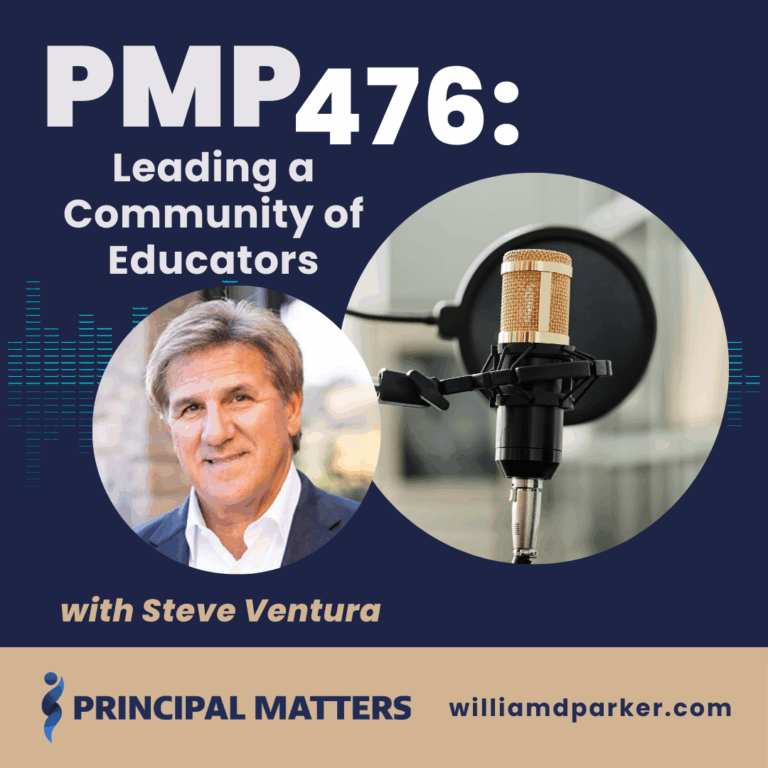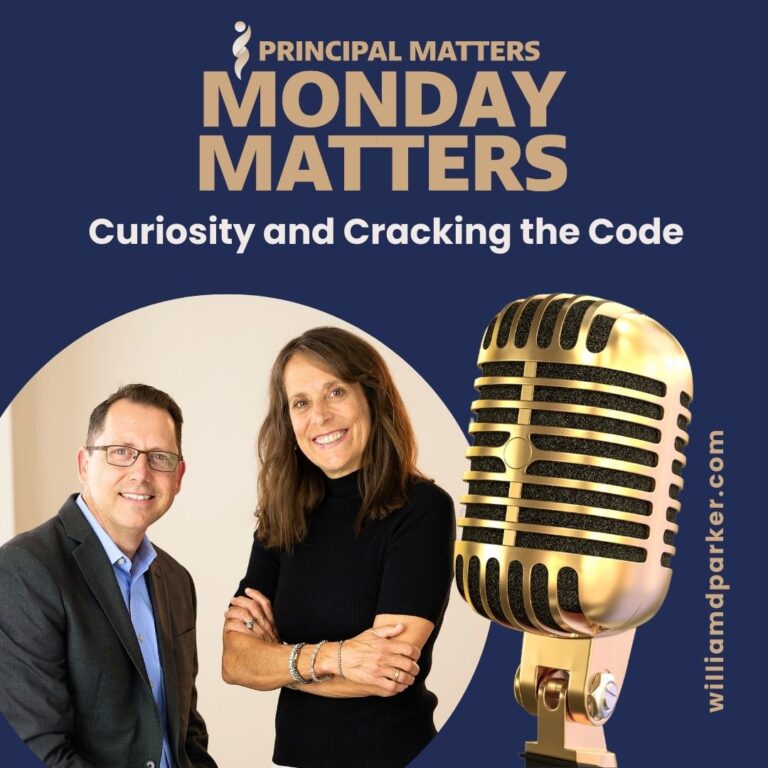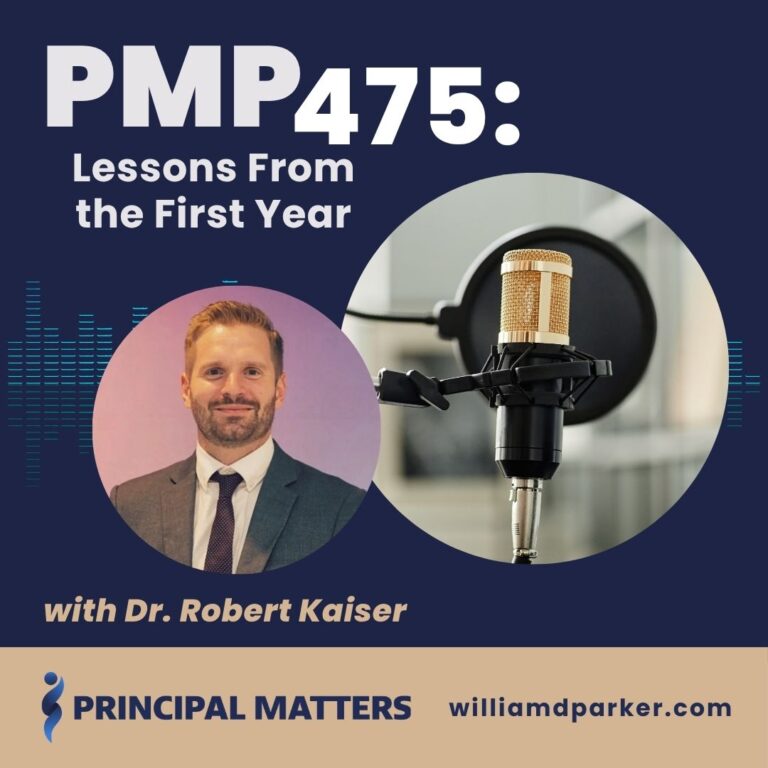Podcast: Play in new window | Download
A few years ago, I sat across my desk from a student whose father had abandoned him and left the state.

A family in our community had taken in the young man, and our school had been in contact with the Department of Human Services on what to do next. That morning I had been watching a video by Josh Shipp called One Caring Adult.
On a whim, I asked the student if he would watch the video on my computer with me. In his story, Josh Shipp shared his own story of abandonment, foster-care, abuse, and eventually finding stability and hope. His story was a powerful reminder of how one caring adult can change the life of a young person.
After watching the video-clip, I asked the young man if he’d ever had one caring adult on whom he could depend. He said, “Yes, my adopted mom who lives out-of-state. But I left because I didn’t want to follow her rules, and I don’t know if she’d have me back.” After several calls and other conversations, his adopted mom arranged a flight for him, and he flew back to her home to start the next chapter in his life.
Josh Shipp has a powerful story that inspires educators and students alike. Earlier this year, Josh spoke at the Oklahoma Middle Level Educators Association annual conference. Later, I was able to sit down with him for an interview. You can listen to our podcast interview or watch the video of our conversation.
Who is Josh Shipp?

Josh is a best-selling author, global youth empowerment expert, and acclaimed speaker. A former at-risk foster kid turned youth advocate, he is known for his documentary TV series Teen Trouble on A&E, that followed his groundbreaking work with teens.
Josh has spoken at universities such as Harvard, Stanford, MIT & UCLA. He is a recognized teen expert for media outlets such as MTV, CNN, FOX, The New York Times, ABC 20/20, & Good Morning America. He’s worked with groups of parents, educators & mental health professionals plus has spoken to more than TWO Million teens and parents live.
His ultimate goal is to help as many young people as possible. He trains other speakers through Youth Speaker University and his online mentoring program One Caring Adult has a world-wide reach.
Questions for Josh
In this interview, Josh answers the following questions:
1. Can you share some of your own story with us, and why you are dedicated to reaching today’s youth?
Josh shares about the influence of a foster parent named Rodney, an educator from Yukon, Oklahoma, who provided him with unexpected stability, firmness and fairness. After being arrested for writing hot checks, Josh has an important conversation with Rodney who tell him: “We don’t see you as a problem, we see you as an opportunity.” As Josh shared, “Every kid is one caring adult away from being a success story.”
2. Can you share one or two strategies on ways to have conversations with youth about uncomfortable topics?
Some strategies that Josh uses when working through difficult conversations include:
A. Be vulnerable.
Vulnerability leads to vulnerability. Just like you catch a ball when it’s thrown your way, when you go first in taking risk, students will often reciprocate the appropriate vulnerability you model. With a half million foster kids in the U.S., Josh believed he was the only one. As he has learned to see life from the perspective of others, he has also learned that we must operate from the position of “Heal the wound, reveal the scar.”
B. Give them a sense of control.
When talking to a young person about a difficult topic, name the topic. Don’t avoid the obvious. Address the elephant in the room by saying, “I need to ask you about ____________.” Then give them a mile-marker. Let them know how long the conversation will last so they understand the controls involved. Also, with boys, Josh suggests side-to-side conversations that feel less threatening.
3. What are some lessons you’ve learned about building teams or training others that may be helpful for school leaders?
Josh also builds and trains teams of motivational speakers on issues affecting students. As he has built teams, he shares three takeaways that have benefited his organization:
A. Simulate inevitable challenges.
If you can give someone a task that involves problem solving or reveals their ability to manage inconvenience or flexibility, you can see how they will handle tasks as responsibility increases. “With more responsibility, the air gets thinner.” Practicing scenarios with team members helps identify where they need to grow before stepping into the real situation.
B. Use Focus Groups.
When testing communication, outreach, or a new lesson or resource, Josh will often share it out with twenty members of his work community. He will ask three simple questions: 1. What was most helpful? 2. What was unclear? 3. What did I just ask for you to do?
C. Keep Mental Focus.
Josh asks his tem to always assess with the question: How can this be 10% better? Always focus on growth and improvement so your service and influence becomes better, not stagnant.
4. What is one parting piece of advice, and how can listeners stay connected with you?
Josh’s parting piece of advice is: “Wishful thinking is not a strategy.” You must be willing to take bold, decisive action on your ideas if you want to move forward in helping others.
If you want to connect with Josh and all his resources, including his menu of speakers he has trained in presentations to youth and educators, you can find out more about him at www.onecaringadult.com.
Let’s Wrap This Up
I do not know the end of the story of the young man who flew back home to his adopted mom, but I do know he was inspired by someone who had been through similar challenges. As a school leader, you also work with many young people who need someone to believe in them. Don’t forget the power of simply being someone willing to mentor or guide others.
Now It’s Your Turn
What is one action you can take today to encourage the student or teachers in your school to see themselves as opportunities? How can you turn good intentions into a positive and powerful actions today?
Sign-Up For Free Updates and Ebook
When you enter your email address below, you will automatically receive my newest posts and a free Ebook, 8 Hats: Essential Roles for School Leaders. Let’s keep learning together!
Subscribe for free weekly updates and receive free e-book!
(function($) {window.fnames = new Array(); window.ftypes = new Array();fnames[0]=’EMAIL’;ftypes[0]=’email’;fnames[1]=’FNAME’;ftypes[1]=’text’;fnames[2]=’LNAME’;ftypes[2]=’text’;}(jQuery));var $mcj = jQuery.noConflict(true);
Principal Matters–The Book!

School leaders are very busy, so each of the twenty-four chapters is designed as a quick-read and followed with take-action questions for follow-up or reflection. If you want practical ideas on understanding your purpose, managing school teams, dealing with challenges, and leading with courage, action, motivation, and teamwork, go HERE to pick up a copy for you or your team.
Messaging Matters

Harness the power of messaging to create a culture of acknowledgment, respect, and celebration. Written specially for leaders, this title is divided into three parts, helping readers to maximize their role as chief communicators with students, teachers, and parents and community. Each chapter includes suggestions for using digital tools to enhance messaging and ends with reflection questions and practical next steps.




